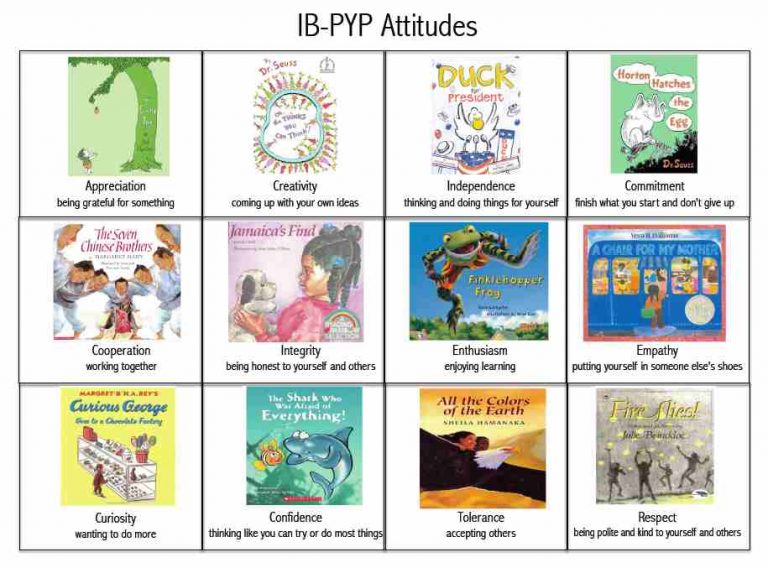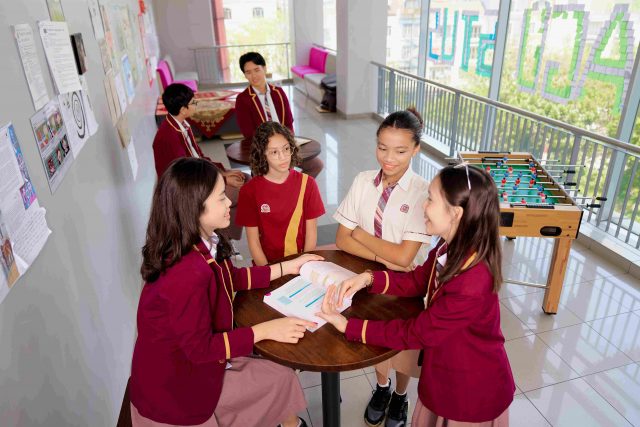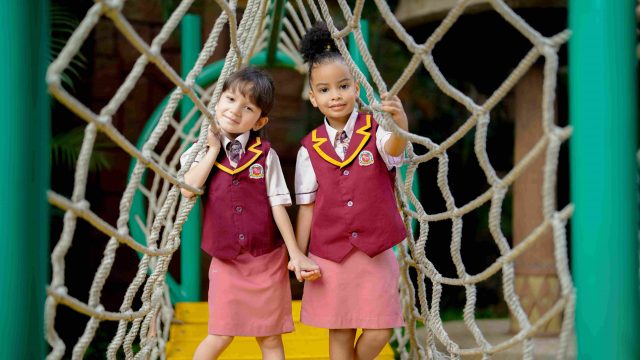PYP Social Studies Scope and Sequence

Understanding the PYP Social Studies Scope and Sequence within the International Baccalaureate (IB) programme is essential for educators and students alike.
At its core, the PYP (Primary Years Programme) fosters curiosity and nurtures a deeper comprehension of the world we live in. So, this article will delve into the core aspects of PYP social studies, from its foundational beliefs to its practical application in the classroom.
What are the Scope and Sequence of PYP?
In simple terms, the scope and sequence in the PYP refer to the breadth and order of the curriculum content, ensuring that students explore concepts progressively and comprehensively throughout their learning journey.
Overall, it outlines what students will learn (scope) and the order in which they will learn it (sequence), guiding teachers in curriculum planning and delivery.
Scope and Sequence in PYP
Social studies in the Primary Years Programme encompasses the study of individuals concerning their past, present, and future, fostering an understanding of diverse cultures and societies.
It promotes intercultural understanding, encouraging students to appreciate differences while reducing prejudice and discrimination.
Beliefs and Values in Social Studies
According to the PYP Social Studies Scope and Sequence document, social studies is envisioned as a comprehensive exploration of people in connection to their past, present, and future, as well as their environment and society.
It encourages curiosity and understanding in a rapidly changing world. Social studies in the PYP fosters personal and cultural identity, preparing students for active engagement in their communities and globally.
Emphasising intercultural understanding and respect also echoes the IB mission. Through diverse perspectives, students cultivate empathy and global citizenship.
In summary, beliefs and values in social studies within the PYP underscore the importance of fostering intercultural understanding, respect, and empathy among students.
Effective Social Studies Practice
In the PYP Social Studies Scope and Sequence guideline document, teaching social studies involves using various methods and experiences that align with the PYP’s philosophy and teaching approach.
The content is tailored to the school’s context and global concepts, enhancing its relevance. Social studies are embedded in inquiry-based learning, emphasising guided inquiry and collaboration among teachers.
Also, learning experiences are authentic and interdisciplinary, promoting diverse perspectives. Tailored to diverse needs, students can engage in dialogue, exploring viewpoints and applying concepts in different contexts.
Knowledge and Skills in Social Studies
In the Primary Years Programme (PYP), social studies knowledge focuses on people: their thoughts, feelings, actions, interactions, beliefs, challenges, living situations, environments, occupations, and societal structures.
All subjects offer chances to apply learning approaches. Overall, the social studies lets students to:
- Ask questions about the past, future, places, and society
- Analyse evidence from historical, geographical, and societal sources
- Understand the time and location
- Recognise societal roles, rights, and duties
- Evaluate source accuracy, validity, and potential bias.
Social Studies Strands
Still, according to the PYP Social Studies Scope and Sequence document, there is a guideline about the study strands, which outlines what students should learn. In this context, social studies knowledge is divided into five strands:
- Human systems and economic activities
Understanding how people create organisations and systems, connect locally and globally, and distribute power and authority.
- Social organisation and culture
Exploring people, communities, cultures, and societies, and how individuals, groups, and societies interact.
- Continuity and change through time
Examining relationships between people and events over time, understanding the past’s influence on the present and future, and recognising individuals who shape the future.
- Human and natural environments
Studying the unique features defining a place’s identity, how people adapt to and change their environment, and the impact of natural disasters.
- Resources and the Environment
Analysing the interaction between people and the environment, how humans manage resources, the consequences of such management, and the influence of scientific and technological advancements on the environment.
15 Benefits of Music in Early Childhood
Key Concepts in The PYP: What Do We Want Students to Understand About Social Studies?
The key concepts in the PYP Social Studies Scope and Sequence serve as lenses through which students explore the world around them, including:
- Form
Students examine the recognisable features of individuals, groups, historical periods, and environments.
- Function
Understanding the purpose and workings of events, systems, and relationships in societies and the natural world is essential.
- Causation
Delving into the causes and effects of human and natural events helps students comprehend the interconnectedness of actions and consequences.
- Change
Students explore the nature of human, societal, and environmental change over time.
- Connection
Recognising the interactions that affect humans and the environment, students understand how the past, present, and future are interconnected.
- Perspective
Students learn to appreciate diverse points of view, understanding how knowledge and experience shape understanding
- Responsibility
Encouraging students to recognise individual and collective responsibilities towards themselves, groups, and the environment fosters active citizenship.
Examples of Questions that Illustrate the Key Concepts
The previous concepts provide a framework for inquiry-based learning, guiding students toward a deeper understanding of social studies within the PYP curriculum. Here are the example questions, according to the PYP Social Studies Scope and Sequence document:
- Form: What kinds of work did people do? How does the landscape look?
- Function: What rules of behaviour did people adopt? How do people celebrate?
- Causation: What motivated individuals or groups to act the way they did? Why did people settle here?
- Change: Why did things change the way they did? How has technology modified the natural environment?
- Connection: What connections exist between society then and society today? How have natural disasters affected people’s lives?
- Perspective: How do people decide on who they want as a leader? Why do people have different points of view about preserving the environment?
- Responsibility: Why should we care about the past? What does it mean to be a world citizen?
Overall Expectations in Social Studies
The overall expectations in social studies outline developmental milestones for students across different age ranges.
From understanding personal identities to exploring global interdependencies, students progressively deepen their understanding of human societies and their roles within them. Here are the details:
-
Overall Expectations in Social Studies: 3–5 Years
In Social Studies for 3–5-year-olds, students explore themselves, their families, and immediate environments, learning rules and routines. They understand their place within various groups and how time and change affect people.
-
Social Studies Scope and Sequence: 3–5 Years
The PYP Social Studies Scope and Sequence for this age focus on human systems, social organisation, continuity and change, human and natural environments, and resources.
-
Overall Expectations in Social Studies: 5–7 Years
For 5–7-year-olds, they deepen their understanding of groups and interactions, broadening their sense of place and recognising technology’s role.
-
Social Studies Scope and Sequence: 5–7 Years
The Social Studies Scope and Sequence emphasises understanding economic activities, cultural aspects, and environmental impacts.
-
Overall Expectations in Social Studies: 7–9 Years
In the 7–9-year-old phase, students extend their understanding of communities, systems, and cultures, recognising interdependency and environmental stewardship.
-
Social Studies Scope and Sequence: 7–9 Years
The Social Studies Scope and Sequence delve into systems, social organisation, and environmental dynamics.
-
Overall Expectations in Social Studies: 9–12 Years
For 9–12-year-olds, students already grasp diverse societal aspects, deepen environmental stewardship, and comprehend historical influences.
-
Social Studies Scope and Sequence: 9–12 Years
The Social Studies Scope and Sequence emphasises human systems, cultural understanding, continuity, change, human and natural environments, and resource management.
Understanding the PYP Social Studies Scope and Sequence lays the foundation for comprehensive and meaningful learning experiences. Your children can explore this enriching educational journey with us at BINUS SCHOOL Simprug.
Learn Socio-Emotional Development of Preschoolers Here
Referensi:
https://www.earj.com.br/wp-content/uploads/2021/08/Social-Studies-Scope-and-Sequence.pdf
https://www.isop.pl/wp-content/uploads/PYP/Curriculum/ISoP%20PYP%20Social%20Studies%20scope%20and%20squence.pdf
https://aiadubai.com/wp-content/uploads/2020/10/Social-Studies-Scope-and-Sequence.pdf



